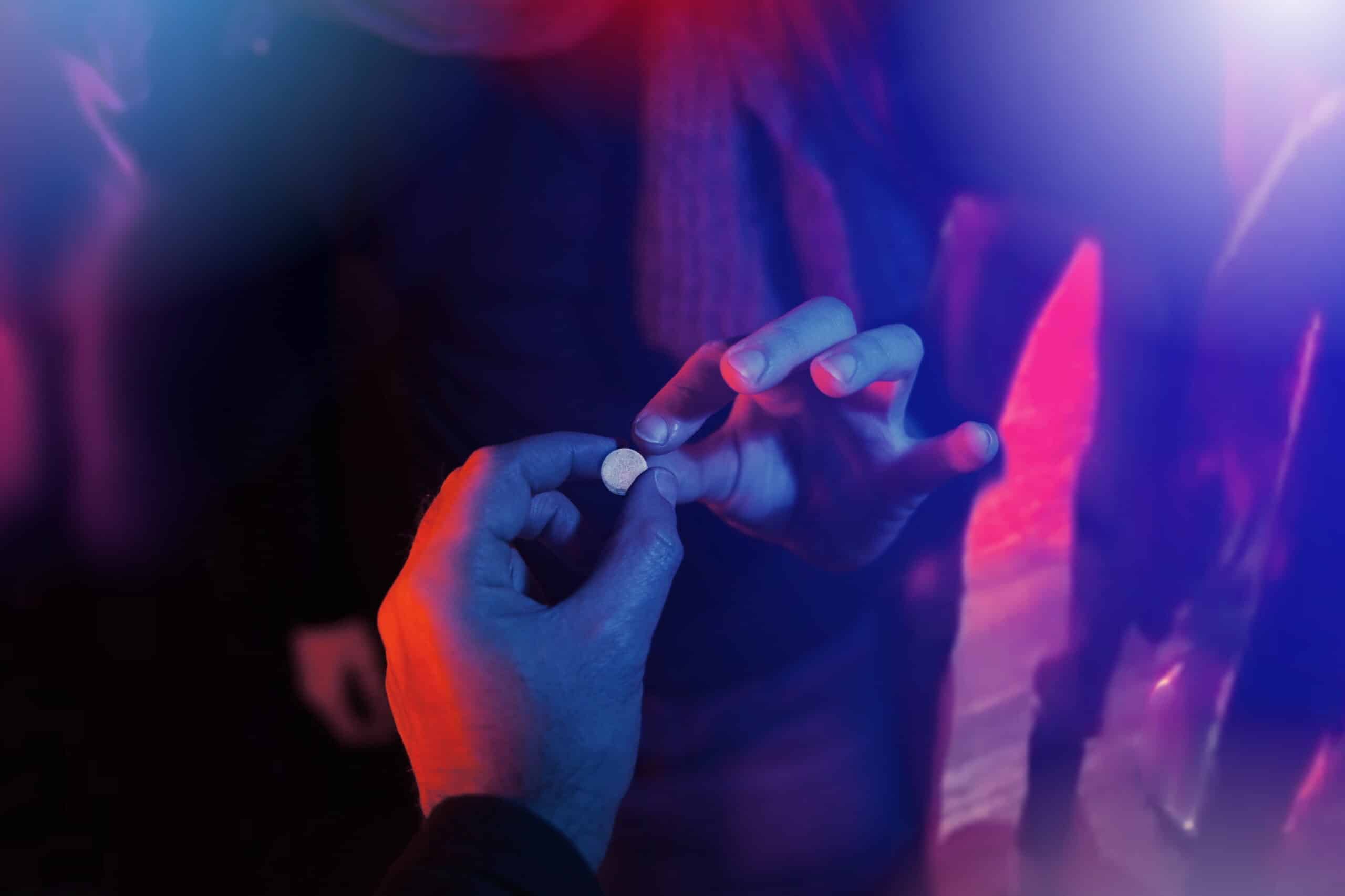
If a friend or a member of your family has attention-deficit hyperactivity disorder (ADHD) or attention-deficit disorder (ADD), you are likely familiar with the prescription medication Adderall. Adderall first received Food and Drug Administration (FDA) approval in 1996. In the nearly 30 years since, it has been used for individuals of most age groups to help alleviate and minimize the intrusive nature of attention-deficit hyperactivity disorder (ADHD) and attention-deficit disorder (ADD) symptoms.
When taken as directed by a medical or mental health provider, Adderall is considered safe and effective. However, when misused or taken by someone other than the patient, it can be highly addictive, and withdrawing from its effects often requires comprehensive treatment to overcome the symptoms of Adderall addiction.
What is Adderall?
Adderall is the brand name for a combination drug prescribed to treat attention-deficit hyperactivity disorder (ADHD), attention-deficit disorder (ADD), and narcolepsy. It contains a combination of dextroamphetamine and amphetamine and works within the brain to alter the effects and production of naturally occurring chemicals. Providers prescribe Adderall to improve symptoms such as hyperactivity, impulsive behavior, and difficulties maintaining attention span.
Data from the Cleveland Clinic suggests Adderall helps to reduce symptoms related to attention-deficit hyperactivity disorder and attention-deficit disorder in up to eighty percent of children and seventy percent of adults. The results can be even more significant when used in conjunction with behavioral therapies as part of a comprehensive mental health program.
Why is Adderall Addictive?
Adderall is addictive because of the two components of the drug. Adderall contains amphetamine, a commonly abused stimulant drug. Although amphetamine is highly effective when used as directed to address specific conditions, stimulants such as amphetamine are frequently abused and misused for their beneficial effects. College students, adults, and some teens take Adderall (off prescription) to improve mood and focus, decrease appetite, and help with academic performance. These “off-label” uses of Adderall can quickly lead to addiction and a range of other potentially dangerous emotional and physical effects. Without treatment, the side effects of Adderall abuse can be challenging to overcome and can lead to new or worsening physical or mental health symptoms.
Adderall works within the brain to increase dopamine levels. Dopamine is a naturally occurring hormone responsible for feelings of joy, reward, and happiness. Dopamine is also responsible for helping your teen regulate their energy levels. Another chemical affected by Adderall is norepinephrine. The use of Adderall affects the production and release, which impacts blood pressure and heart rate. When levels of this chemical increase, energy levels improve. Unfortunately, tolerance to Adderall builds quickly, and users often find they need higher and more frequent doses to achieve the same desired effects.
More About Amphetamines
While opioids and benzodiazepines are drugs that work to depress or slow the activity of the central nervous system, amphetamines act as central nervous system stimulants. This means using amphetamines increases certain types of brain activity, which results in feelings of higher energy, increased focus, and elevated confidence.
Amphetamine use elicit feelings of euphoria depending on the frequency and the amount of dose taken. According to the Center for Substance Abuse Research at the University of Maryland, amphetamine has been around since the late 1800s. However, medical and mental health providers did not discover its stimulant properties until over one hundred years later, when it was first used to treat symptoms of nasal congestion.
Today, amphetamines are used to treat a variety of conditions. Most notably, they remain a frequently prescribed drug for treating hyperactivity in adolescents, teens, and adults. On occasion, mental health professionals and members of the medical community may prescribe amphetamines to treat certain symptoms related to depression.
What are the Common Warning Signs of Adderall Abuse
Amphetamines like Adderall are abused in various ways. Many people take the drug in pill form and experience a high. However, some people crush the pills and snort them, resulting in the faster onset of a more intense high. One of the quickest ways to experience a high from amphetamines is to crush the pills, dissolve them in water, and inject the liquid. This method results in an almost immediate and intense high.
Teens often misuse Adderall as a study aid. They believe that the high levels of energy and focus that result from taking the drug can help them increase their performance levels in school, especially on tests and exams. Despite this misguided belief, a recent article in TIME discusses the results of a study that indicates amphetamines do not improve performance and, in some cases, significantly decrease academic performance levels.
Results from a 2015 study conducted by the National Survey on Drug Use and Health reported nearly five million people in the United States abused prescription amphetamine medications within the last year. If you believe your teen is abusing amphetamines like Adderall, you may wonder what signs and symptoms to look for. As with many substance addictions, if your teen abuses Adderall, you may notice various physical and emotional symptoms and behavioral changes.
Physical changes may include dental problems, skin sores, increased heart rate, elevated blood pressure, appetite changes, digestive issues, and changes in sleeping patterns. You may notice particular mood and emotional changes, including mood swings, aggression, increased paranoia, and new or worsening anxiety. When your teen is addicted to an amphetamine drug like Adderall, they may engage in behaviors that are not normal for them.
For example, they may begin to struggle academically or fail classes. They may also steal pills from someone or take pills from their prescription to sell to others to make money to buy more amphetamines. They may also experience visual and auditory hallucinations. These psychotic symptoms can sometimes last for months or years after someone has stopped taking amphetamines.
Depending on their addiction’s duration and severity coupled with the severity of changes to the brain, some people may experience spontaneous recurrence of psychosis years later. Last but not least, your teen may start losing interest in people and activities they once enjoyed and significantly change their social circles.
Where do Teens Get Adderall?
There are many different sources of drugs available to teens. As a result, adolescent drug use remains a significant health issue throughout the nation. It is crucial for parents to know about the sources of legal (and illegal) substances to better help protect their children from substance abuse and addiction. Most drug sources for adolescents and teens do not require going into a pharmacy or purchasing the substance from a store. A high prevalence of substance use in most communities gives many teens quick and easy access to substances, both legal and illegal. Also, groups of teens can develop specific ways to find and distribute substances among one another without parents or other adults finding out.
At home
Medicine cabinets and cupboards at home are a source of Adderall and other drugs for teens. Teen prescription drug abuse rates are high, especially when it comes to performance-enhancing drugs such as Ritalin and Adderall. Therefore, it is crucial for parents to remove any unused medications from home as soon as possible. It is also essential to pay attention to whether any prescriptions are running out faster than you believe they should be.
In school
Many drug transactions, including those involving Adderall, occur on school grounds where teens sell drugs to their peers. Sadly, at school, many teens have access to a wider variety of substances than they would typically have in their social groups or at home. Some statistics suggest that nearly 20% (or one in five) of all high school students say they have been given, sold, or offered drugs while on school property.
Online
There are multiple ways teens can obtain drugs online. Spam emails and popups advertising cheap drugs for sale are becoming more and more common on many websites and search engines. Web pages that appear to be legitimate operations for selling illicit substances are available anywhere in the world to anyone who clicks on them. Teens can learn of these sites through word of mouth and, therefore, easily purchase legal and illegal substances online.
Teens may also use “the dark web” to purchase medications without a prescription. The dark web is primarily used for illicit activities, including drug sales. Dark web aside, however, the Internet has many fake pharmacies that sell prescription drugs illegally. Many of these “pharmacies” are not based in the US and therefore not subject to American regulations. It is possible to go online and order any number of prescription medications without legal repercussions and have them shipped directly to your doorstep in discreet packaging.
In the best of situations, buying medications online from illegal pharmacies means your team is ordering what they believe to be Adderall and receiving sugar pills. In the more severe and typically more deadly cases, medications contain highly toxic substances such as fentanyl. Also, because there is no regulation, there is no quality control and no way to guarantee that the actual dosage of a medication purchased through these providers is as advertised. This makes the potential for fatal complications such as overdose a real possibility.
Getting help for Adderall Addiction at Beachside
Detox and withdrawal from an Adderall addiction are not often dangerous or life-threatening. However, for many, the process is not easily or successfully done without medical and mental health support. Many who choose to withdraw from Adderall without help during the early withdrawal period will relapse as cravings and symptoms increase in intensity and severity. At Beachside, our caring and compassionate staff understand how to help your teen as they take steps to overcome an Adderall addiction. To learn about our Los Angeles area teen-focused rehab, contact a member of our admissions team today.




